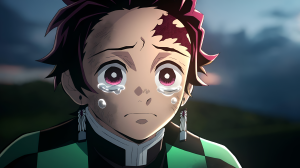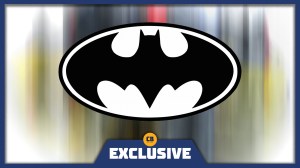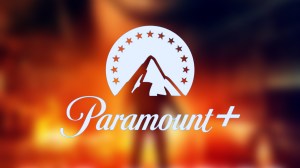Jeff Russo is an Emmy-winning and Grammy-nominated composer known to Star Trek fans for his work on Star Trek: Discovery. This year, he expanded his reach in the Star Trek universe by scoring the first season of Star Trek: Picard. Outside of the Star Trek franchise, his work spans film, television and video games. He won an Emmy Award and received two more nominations for his on FX’s award-winning series Fargo, created by Noah Hawley. He received a BAFTA nomination for Best Music for the video game What Remains of Edith Finch. Last Year, he received a World Soundtrack Award nomination for “TV Composer of the Year 2019.”
Videos by ComicBook.com
With the first season of Picard now behind him and the third season of Discovery on the horizon, Russo spoke to ComicBook.com over the phone about his work in the Star Trek universe. He touched on Picard, the past and future of Discovery, and discussed what separates and connects the two shows. He also spoke a bit about other Star Trek projects like the upcoming pilot for the Star Trek: Section 31 spinoff and Hawley’s upcoming Star Trek movie.
We also discussed his work in the X-Men universe on Legion and on Netflix’s superhero drama The Umbrella Academy. Here’ what he had to say.

You’ve worked on Star Trek: Discovery and you’ve worked on Star Trek: Picard. With both of those shows under your belt now, do you feel there’s a commonality that exists across these Star Trek shows, as far as how they sound, no matter how different the shows are? Is there something at its core that needs to be there to make it sound like Star Trek?
Jeff Russo: Well, there’s a sound of Star Trek, there’s a sound to that swashbuckling space show, and I try to inject that into both those scores. But Picard is significantly different than Discovery. It’s different in as far as I’m dealing with a much smaller emotional piece. Meaning, I wanted it to be more intimate. I wanted Picard to be a more intimate sound because I’m just talking about supporting one character’s story and that character’s emotional story arc as opposed to an entire crew. Now, I do deal with the other characters, obviously, and I take care to make sure that they are musically represented and their story is told that way, but it really does all boil down to people in Picard.
And that’s just a different way of looking at how to tell a story with music than what I think I do on Discovery, which is a much broader score and a much broader way to look at it. But I do think that there’s a certain tonality and a certain sound that I utilize in both shows, strings and big horns and I definitely try to bring a more emotional take to both those shows. And I think that’s simply because that’s the way I like to write music.
Finding Intimacy in Picard
Did you find it especially challenging to balance the emotional intimacy of Picard against the space opera backdrop fo the Star Trek universe?
JR: No. I mean, I have dealt with that before, but Picard is a very complex character and this particular story has some differences in terms of how it’s being told from other Star Trek iterations, so it did pose somewhat of a challenge, like trying to figure out how to tell that story with music because I didn’t want to be over the top on the one end and I didn’t want to be too subtle on the other. So it was finding that fine line to walk was sort of challenging.
Paying Homage to Star Trek’s Musical History

You do a great job of paying homage to Star Trek‘s musical heritage by making use of past pieces, be it The Original Series theme in Discovery of The Next Generation and Voyager themes in Picard. What’s your thought process like when you’re deciding when to drop those pieces into your score? Do you ever waver once you’ve had the thought?
JR: Well, it’s usually pretty clear. I guess what helps me decide is if it’s not a hundred percent clear, I don’t do it. When it’s 100 percent clear, it works. When it’s not 100 percent clear, it doesn’t work. I don’t want to ever be too on the nose. We have a lot of musical canon to nod to, and I think it’s important to include those nods because I’m very reverent to what has come before me. Jerry Goldsmith, Jay Chattaway, Alexander Courage, Fred Steiner, there’s a list a mile long and I can’t actually name every one of them in such a short time, but there’s a long list and when it’s appropriate, why not? Why not nod to it?
I’m a fan. I’m a Star Trek fan, so I think of it in two ways. How do I look at this as a storyteller and how do I look at this as a fan? And I hope that those meet in the middle. Sometimes I have to always just have my storyteller hat on and sometimes I’m able to have my fan hat on. But that’s how I look at it. I want to be happy. I want to sit back from my desk, I want to look at the screen and I want to feel something too. And those things and the things that I’m trying to write for it really ring that to be true for me.
Discovery’s Future
We know that Star Trek: Discovery is jumping forward almost a thousand years into the future. How does that affect the sound of the show, if it affects it at all? Or is it very much of a piece of what came before?
JR: I think that it’s not going to change the sound of the score, like, “Hmm, I wonder what music sounds like a thousand years past where we were already, which is significantly past where we are right now.” So I don’t think I’m looking at it like that. I mean, there’s new characters, there’s new geographical locations. There are new scenes that need to be created for the new story. But I don’t think that it’s going to change my process. I don’t think that it’s going to change how I look at the story. I’m going to tell the story the way I have always told the story, which is I look to what the characters are feeling in any given moment as opposed to what they’re doing and I try to underscore and support that emotional context.
Section 31

Are you involved with the Section 31 spinoff? Do you have thoughts about how that show should sound?
JR: I have not been asked to do that. I don’t know that there are talks about what music is going to be on that yet. I think it’s in the development process, so I really don’t know the answer to that question. What would that sound like? My hope would be that it would support the story. A darker story might require a darker score. It might tell a composer where to put music as opposed to having the action sequence music. Maybe there’s no music for action sequences and maybe those moments are left for after the action. There’s so many different choices that you can make in creating a score and it’s hard to know without knowing what the actual story is. I mean, I only have a sort of a framework idea of what that story is supposed to be. So there’s really no way to make any sort of judgment.
Hawley’s Star Trek
You’ve worked with Noah Hawley on different projects and now he’s working on a Star Trek movie. Have you discussed the film with him? Batted around any ideas?
JR: We have had conversations about what it might sound like, what it might be, what he’s thinking. Nothing is set in stone right now. The movie is still in development and still being written and there are lots of pieces that need to get put into place, so who knows what’s going to happen? But Noah and I are our close friends as well and we talk about music all the time and talk about that and talk about the Star Trek that I’m already doing and we talk about that and right now we’re working on Fargo so there’s always talk about that. This was two people who are artistic talking about what the possibilities are for what the new Star Trek movie could sound like or could have in it or could be.
Music In the Narrative

One of those projects you worked with Noah Hawley on is Legion. You also work on The Umbrella Academy. Both are series where music and musical pieces are part of the story. Do you approach scores for series like that, where music is so directly tied into the narrative, differently?
JR: When Noah, who’s the creator of Legion, asks me to think about what I would do in a dance battle, that sort of comes outside of the score, so I don’t know that one necessarily informs the other. I think that those types of moments are very much encapsulated in their own world from a musical perspective and keeping the score its own thing is usually how I’m able to sort of make that work in my head.
The X-Men Universe
You’ve been working on Star Trek, which you’ve said you’re a fan of. You worked on Legion, which is an X-Men property. I don’t know if you’re as attached to that franchise as you are Star Trek, but with the film series now in the hands of Marvel Studios, I was wondering if you’ve given any thought to how you might handle scoring an X-Men movie in the Marvel Cinematic Universe?
JR: Playing with the musical version of Legion was and will, I think, always be one of the greatest times I’ve had making the score in my entire life. I mean, Noah allowed me to play in a sandbox that I’d never played in before for visual media and there were no rules. We basically unbridled ourselves from any of the rules. And I think that if we were to be asked to do an X-Men movie of any sort, I would hope that that filmmaker would want it to be unbridled in that way. Because I think that, certainly with the character David Haller, it seemed reasonable to do that. I very much enjoyed that, so I’d love to do that again and I think that it could work in a much broader sense, but who knows? We’re all just trying to make art.
The Umbrella Academy

You have the second season of The Umbrella Academy coming up, which is another situation where it seems like the setting of the series is going to be changed from the show’s previous season. Can you talk a bit about how that’s shaping up?
JR: Well, there’s definitely a big change in setting, that’s for sure. And we tried not to change too much the approach of how to tell the story musically. I mean, we used a lot of really great songs in season one. We’re going to be using a lot of great songs in season two. We use score in a very meaningful way to support the emotional arcs of all of our characters in season one. We’ll be doing that again in season two. There are some new characters that we’re going to be having some fun with from a score perspective and that’s always fun, coming up with new thematic ideas for new characters and how to underscore them. So there’s a lot of new and then there’s a lot of the same. It’s a lot of both, but it’s definitely a thrill ride this year.








